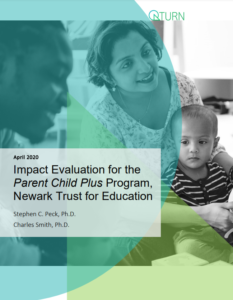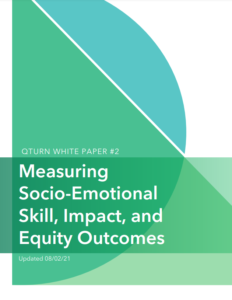Tag: Q-ODM Toolbox
The Quality-Impact-Equity Design and Methods (QDM) Toolbox was used to: (a) reconfigure existing measures for Parenting Practice Quality and Child SEL Skill to maximize reliability and validity for measuring socio-emotional skills and learning (SEL); (b) produce holistic profiles of parent and child skill at each timepoint; and (c) apply pattern-centered analytics to estimate impact and equity effects of the PC+
program as implemented in Newark.
We present steps to (a) identify the real objects we seek to represent with measurement and models (i.e., the parts of an individual’s SEL skill set and the type and amount of skill change that is likely to occur during the program) and (b) produce SEL skill indicators and measures that are feasible and valid for both CQI and impact evaluation uses.

